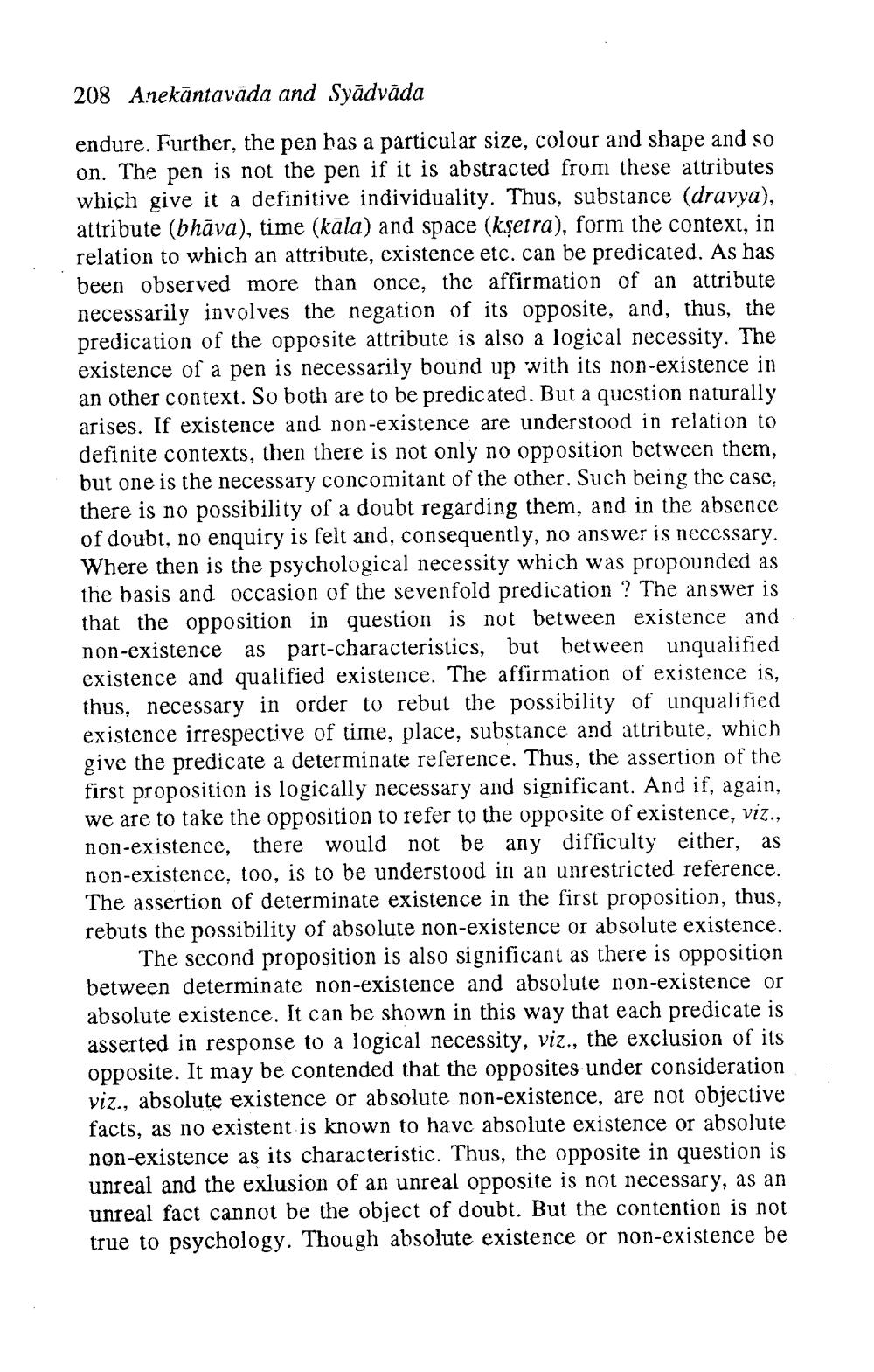________________
208 Anekāntavāda and Syādvāda
endure. Further, the pen has a particular size, colour and shape and so on. The pen is not the pen if it is abstracted from these attributes which give it a definitive individuality. Thus, substance (dravya), attribute (bhāva), time (kāla) and space (kşetra), form the context, in relation to which an attribute, existence etc. can be predicated. As has been observed more than once, the affirmation of an attribute necessarily involves the negation of its opposite, and, thus, the predication of the opposite attribute is also a logical necessity. The existence of a pen is necessarily bound up with its non-existence in an other context. So both are to be predicated. But a question naturally arises. If existence and non-existence are understood in relation to definite contexts, then there is not only no opposition between them, but one is the necessary concomitant of the other. Such being the case. there is no possibility of a doubt regarding them, and in the absence of doubt, no enquiry is felt and, consequently, no answer is necessary. Where then is the psychological necessity which was propounded as the basis and occasion of the sevenfold predication ? The answer is that the opposition in question is not between existence and non-existence as part-characteristics, but between unqualified existence and qualified existence. The affirmation of existence is, thus, necessary in order to rebut the possibility of unqualified existence irrespective of time, place, substance and attribute, which give the predicate a determinate reference. Thus, the assertion of the first proposition is logically necessary and significant. And if, again, we are to take the opposition to refer to the opposite of existence, viz., non-existence, there would not be any difficulty either, as non-existence, too, is to be understood in an unrestricted reference. The assertion of determinate existence in the first proposition, thus, rebuts the possibility of absolute non-existence or absolute existence.
The second proposition is also significant as there is opposition between determinate non-existence and absolute non-existence or absolute existence. It can be shown in this way that each predicate is asserted in response to a logical necessity, viz., the exclusion of its opposite. It may be contended that the opposites under consideration viz., absolute existence or absolute non-existence, are not objective facts, as no existent is known to have absolute existence or absolute non-existence as its characteristic. Thus, the opposite in question is unreal and the exlusion of an unreal opposite is not necessary, as an unreal fact cannot be the object of doubt. But the contention is not true to psychology. Though absolute existence or non-existence be




